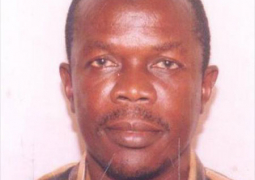Our story makes it clear this is a finding in a World Bank report released last year.
In fact, it the World Bank report supported the emphasis the African Union has since placed on African agriculture.
So it is obvious that this was the genesis of the back-to-the-land call at home, and reveals the empirical underpinnings of this government policy pronouncement.
Now we have evidence that the policy has a sound basis, and is not just a mere slogan crying for a plausible explanation.
We learned that “in 2003, the New Partnership for Africa’s Development (NEPAD), an African Union framework for the continent’s socioeconomic development, launched the Comprehensive African Agriculture Development Programme (CAADP) ‘to eliminate hunger and reduce poverty through agriculture.’
“By signing on to CAADP, most African governments agreed to invest at least 10 per cent of their national budgets in agriculture and to raise agricultural productivity by at least 6 per cent. Through CAADP, Africa is slowly but steadily moving forward.
“However, the NEPAD 2011 annual report highlights that just eight out of Africa’s 54 countries have met the target of 10 per cent of budget allocation, while just 10 surpassed the target of 6 per cent productivity growth.
“To commemorate 10 years of CAADP, African leaders in 2012 declared 2014 ‘the Year of Agriculture and Food Security in Africa'. With African agriculture growing at 4 per cent, the leaders hope to build on that momentum in the coming years.”
What we have read above helps increase our understanding of the current declarations and activities of our leaders at home.
It is, therefore, pertinent that the focus in this year’s tour is public sensitization on the Vision 2016 goal of attaining national food self-sufficiency, as highlighted in our report yesterday on the president’s ongoing dialogue-with-the-people tour.
Yet, as our report in this edition makes clear, African leaders may have already seen the way forward, “but more actions must match their words.”
The current 2014 budget of the Gambia government shows it has allocated about 5 per cent of “all funds”, totaling nearly 10 billion dalasis, to the agriculture sector.
Listening and watching GRTS television reports on the tour, one gets the feeling that political will is not lacking.
However, it is clear that more resources must be put in agriculture, so as to achieve the stated national goals within the declared timeframe.
“When tillage begins, other arts follow. The farmers, therefore, are the founders of human civilization.”
Daniel Webster
Read Other Articles In Article (Archive)


